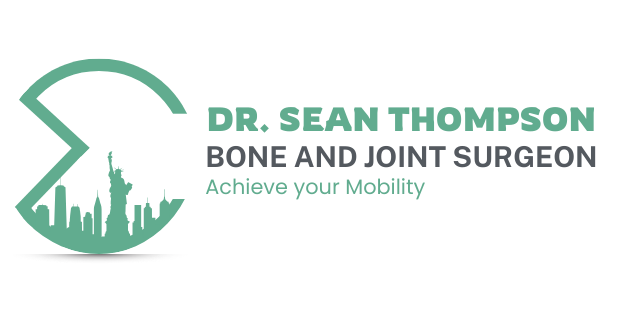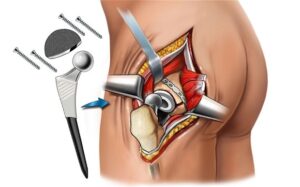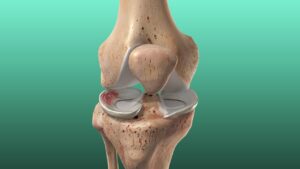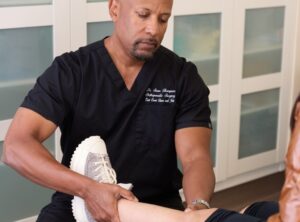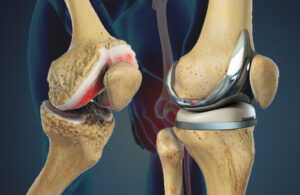Having hip pain can either emerge gradually or shut down a person’s ability to function suddenly. Understanding when and how to seek orthopedic intervention can significantly assist in regaining mobility and fully optimizing one’s quality of life. Regardless of whether a person has lived with chronic discomfort for years or has only recently experienced a decline in movement, knowing the signs that warrant orthopedic evaluation for hip replacement surgery is essential.
This blog aims to highlight the most prominent indicators that may necessitate hip replacement surgery, with special focus on when to consult with an orthopedic specialist like Dr. Sean Thompson, an esteemed hip surgeon in Englewood, NJ. Lastly, for motivated individuals who wish to identify what recovery entails from an orthopedic perspective, our previous post titled “Before & After Hip Replacement—What Every Patient Should Know” provides a curated experience of life before and after surgery.
Hip replacement refers to a type of surgery in which the damaged parts of the hip joint are surgically excised and replaced with artificial parts. It is usually advised after other forms of treatment, such as modifiable risk-factor medication, physical therapy, or other non-surgical lifestyle changes, fail to provide the desired relief.
If you are interested in a hip replacement in NJ, or even more precisely, a hip replacement in Englewood, NJ, you are not by yourself. This solution has helped restore mobility and eliminate stubborn pain for thousands of patients every year.
10 Signs You May Need a Hip Replacement
These are the more notable symptoms for which you may want to schedule a visit with an orthopedic surgeon regarding a hip replacement:
1. Chronic Hip Pain
Experiencing hip pain worsens and interferes with regular activities like walking or even stair climbing. If that is the situation, something deeper is likely wrong with you.
2. Stiffness and a Limited Range of Motion
Having a hard time moving your leg or even rotating your hip suggests you may have a degenerated joint. You may even have difficulties in wearing socks and shoes.
3. Pain While Resting or Sleeping
If pain persists to the point of difficulty with sleep, it might be worth looking into hip replacement NJ options. Hip arthritis and damage can result in pain even when lying down.
4. Visible swelling and inflammation
Persistent medication-resistant joint inflammation can be quite severe, with joint damage when accompanied by other medication-resistant inflammation.
5. Hip Issues Accompanied By Groin or Knee Pain
Thigh and knee discomfort can sometimes signify underlying hip issues. Such discomfort is frequently indicative of hip joint erosion.
6. Gait Change and Limping
Have you noticed altered or limping gait patterns? This might be a result of a painful or unstable hip joint.
7. Increased Reliance on Pain Medications
If lower back pain medicine is no longer effective, the underlying problem might require a different resolution.
8. Physical Therapy Is No Longer Working
In the presence of severe joint damage, past effective therapeutic measures may cease to be effective.
9. Joint Damage Diagnosed By X-Ray Or MRI
Imaging that reveals significant cartilage degeneration or bone-on-bone contact may necessitate surgical interventions.
10. Diminished Life Quality
If you can no longer work, pursue hobbies, or spend time with loved ones due to hip pain, you need to act promptly.
When to See an Orthopedic Surgeon
The more options available to you, the sooner you will see an orthopedic specialist such as Dr. Sean Thompson, a name you may know him by. Residents of Englewood, NJ, and nearby communities appreciate and rely on Dr. Thompson for his thorough, expert evaluations, honest and blunt assessments, and advanced, minimally invasive surgery, when warranted.
Seeking professional help early or delaying surgery on several occasions led to an improvement in outcomes when surgery did become necessary.
Diagnosis and Evaluation
As with many other patients, when you visit Dr. Sean Thompson, your evaluation may incorporate the following:
- Pain and range of motion evaluation, including a physical examination.
- X-rays are used to assess for the presence of any bones with damage or deformities.
- MRI scans of the bones to assess for any inflammatory processes and the presence of cartilage loss.
- Assessment of daily activities to determine the impact of the hip pain on the patient’s life.
Each of these steps aids in painting a more complete picture, thus enhancing the possibility of accurate determination of the nature of the problem, preferably without the need for surgery.
Non-Surgical Alternatives
Before formulating a surgical plan, Dr. Thompson may advocate for:
- Exercise designed to increase the strength of the hip and thigh muscles
- Medication to relieve inflammation or associated pain
- Corticosteroid injections
- Walking aids such as a cane or a walker
- Weight management programs
Should the aforementioned options not address the patient’s pain, hip replacement in Englewood, NJ, may be the most effective option.
For what reason, Dr. Sean Thompson?
Dr. Sean Thompson is known as a trusted orthopedic surgeon in Englewood, NJ. He is acclaimed for:
- His education for specialization in joint revision surgery
- His computer-assisted, minimally invasive, and “patient-first” practices
- He is well known for his unparalleled empathy in patient care.
- He has also been extremely successful in achieving the best outcomes for his patients
He is well aware that all patients are different, and every hip too, as this is the first step towards a successful surgery.
What to Expect from Hip Replacement Surgery
With Dr. Thompson, you will get comprehensive guidance from the planning stage all the way to recovery. Below is a summary of the steps:
- Preparation steps for surgery
- Testing that is necessary and defined prior to the operation
- Overall health and medication assessment
- An indication of expectations before, during, and after surgery
Surgical steps
- Use of spinal or general anesthesia
- Excision of diseased and injured portions of the joint
- Artificial components are implanted to restore joint function
Post-surgical steps
- Inpatient stay of 1 day to 3 days
- Initiation of physiotherapy
Duration of 3 to 6 months before full recovery for the majority of cases
If you would like to have a more in-depth explanation of the expectations post-op, please read our blog: Before and After Hip Replacement what Every Patient Must Know.
A strategically planned surgery can significantly improve different dimensions of your life, such as:
Benefits of Hip Replacement
- Provides substantial pain alleviation
- Restores strength and mobility
- Improves rest, along with overall comfort
- Enhances day-to-day activities
- Improves mental wellness and overall life quality
–
With proper intervention and expert care, countless individuals who used to endure crippling hip pain are now living actively and pain-free.
Areas of Service
With great pride, Dr. Thompson sees patients of:
Englewood, NJ
Clifton, NJ
Jamaica, NY
New York, NY
For those looking for hip replacement in NJ or an orthopedic surgeon in Englewood, NJ, assistance is provided nearly everywhere.
Conclusion
Consider talking to a specialist if you have not, as hip pain is something that can be managed easily. Dr. Sean Thompson engages with patients actively and provides advanced treatment options to ensure that every individual receives optimal health care tailored to their needs.
Contact us now to schedule your consultation and regain your strength while living pain and worry-free.
